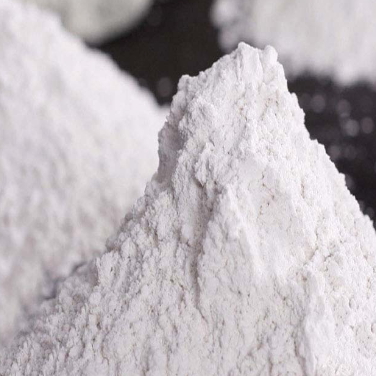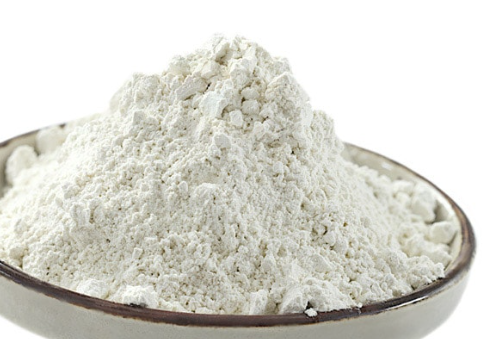- Understanding the Role of Geomembrane Liners in Waste Management
- Innovations in Geomembrane Liners for Water Management
- Geomembrane Liners: A Comprehensive Guide
- The Future of Geomembrane Liners in Civil Engineering
- Geomembrane Liners: Enhancing Landfill Stability
Manager:Alvin Wang
WhatsApp:+62 8983806051
Tel:+86 10-5797-1075
Email:steelwang@okorder.com
Address:3rd Floor, No.2 Building, No.1 Sanlihe Road
Is bentonite a cement?
Bentonite appears so unoffending, yet it is used for multiple purposes in construction and beauty industries. It also has an important application in geotechnical engineering where bentonite blankets are constructed. But what is a bentonite blanket and can bentonite be referred to as cement? Let’s find out more about this fascinating substance.

Understanding Bentonite: Nature’s changing Mud
Bentonite is a type of clay which is formed from volcanic ash and has unique characteristics. Its name comes from the largest known deposit of bentonite at Fort Benton in Wyoming, USA. It is mostly made up of montmorillonite – a swelling clay mineral that gives it extraordinary water absorption properties.
The Birth of Bentonite Blankets: A Solution to Seepage Problems
In geotechnical engineering especially where dams, landfills, underground structures are concerned, proper water control is crucial. One common problem that engineers face in soil layers involves preventing seepage. This calls for the use of bentonitic blankets.
What is a Bentonite Blanket?
A bentonitic blanket also referred to as bentomat or GCL (geo-synthetic clay liner) is an engineered geo-technical barrier that controls fluid migration in various applications. It consists of geotextile or geomembrane layers surrounding a central mass of bentonitic clay.
How Does a Bentonite Blanket Work?
This effectiveness results from the ability of this material to swell when saturated with water. Upon contact with water, montmorillonite found within the constituents expands making dense impermeable barriers hindering movement of fluids through them thus sealing off prospective passages for water flow streamlining seepage control.
Applications of Bentonite Blankets
Bentonitic blankets are prevalent in wide-ranging geotechnical functions such as:
1. Landfill Liners: Bentonitic blankets act as primary barriers in waste containment systems to prevent seepage of leachate into surrounding soil and ground water.
2. Pond and Canal Linings: The use of bentonitic blankets as linings for ponds, canals, and reservoirs reduces seepage losses by increasing water storage efficiency.
3. Environmental Remediation: Use of bentonitic blankets is often applied to demarcate contaminated areas in environmental remediation projects in order to prevent the spread of pollutants through the soil and groundwater.
Is Bentonite a Cement? Debunking the Myth
Questions frequently arise on whether bentonite is cement due to its formation of impermeable barriers similar to cementitious materials. However, it should be noted that while both serve as sealing agents, the mechanism by which they work differs.
Bentonite vs. Cement: Understanding the Differences
Cement, particularly Portland cement operates through hydration reactions that solidify into a rigid mass. This binder reacts with water via a chemical process called hydration which binds particles together to form a solid structure.
On another note, bentonite operates physically due to its swelling characteristics. Upon contact with moisture, this clay expands several times over its initial volume forming dense impermeable barriers for blocking fluid movements.
The Role of Bentonite in Construction
While not strictly speaking a cement, bentonite still has significant uses within construction industry. It is also used in other applications such as beyond bentonitic blankets including:
Drilling Fluids: In drilling operations, bentonite slurries are used as lubricants and suspension agents to remove drill cuttings, stabilize boreholes, and control formation pressures.
Sealing and Grouting: Bentonite-based grouts are utilized for sealing wells, plugging leaks, and stabilizing soil in geotechnical and environmental projects.
Foundry Sand Binders: Bentonite is a key ingredient in foundry sand binders, facilitating the molding and casting of metal components in the manufacturing sector.

Conclusion
In conclusion, while bentonite shares certain sealing properties with cement, it operates on distinct principles rooted in its unique clay mineralogy. Bentonite blankets exemplify the ingenuity of leveraging natural materials to address engineering challenges, offering sustainable solutions for seepage control and environmental protection.
While we continue to explore the infinite potentials of bentonite as well as other natural resources we should respect this intricate fusion between science-engineering-nature that shape our built environment.”
-
2024-05-15How long does bentonite waterproofing last?
-
2024-05-15What is bentonite used for?
-
2024-05-15What happens when bentonite gets wet?
-
2024-05-15Does bentonite go bad?






